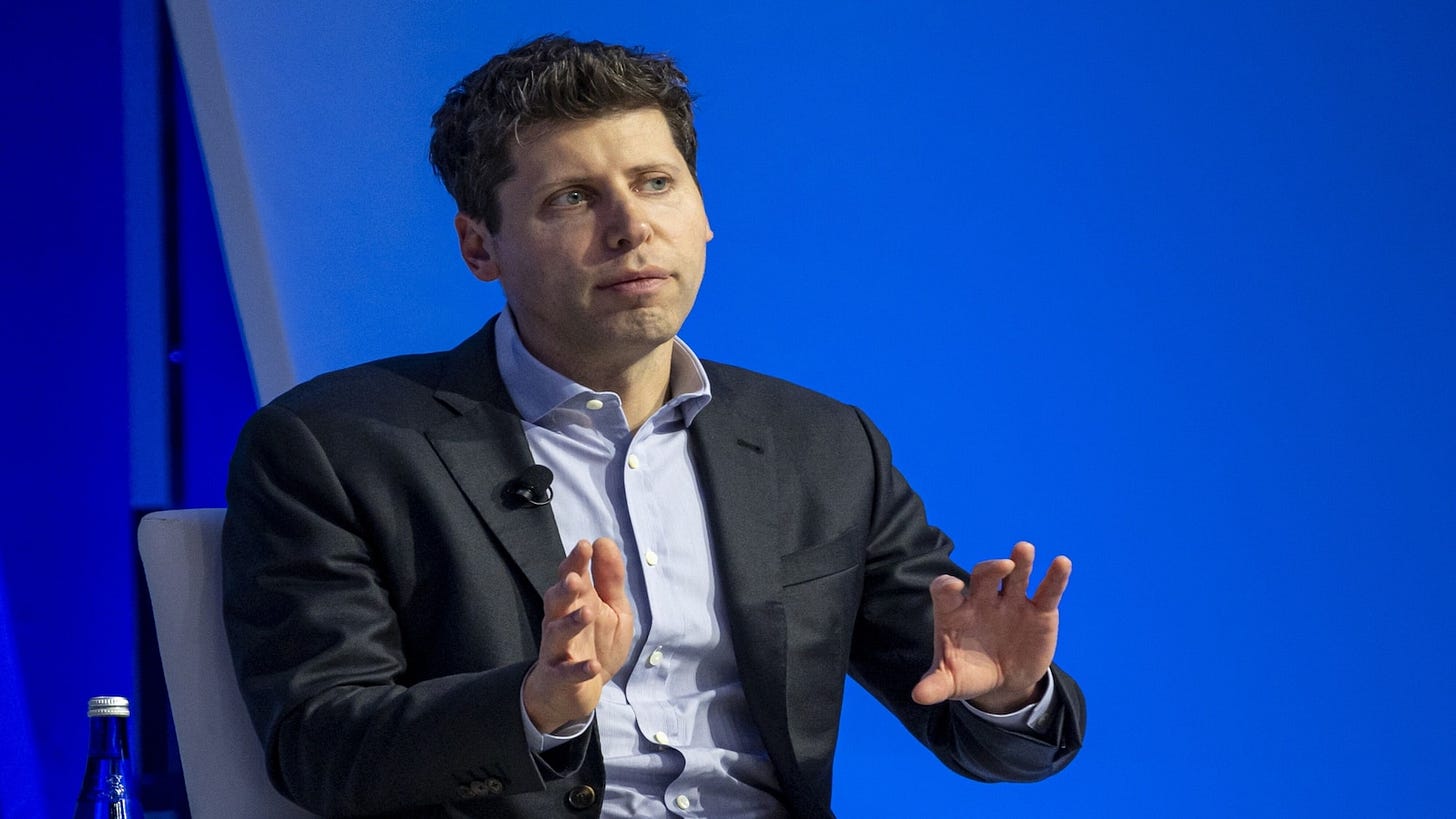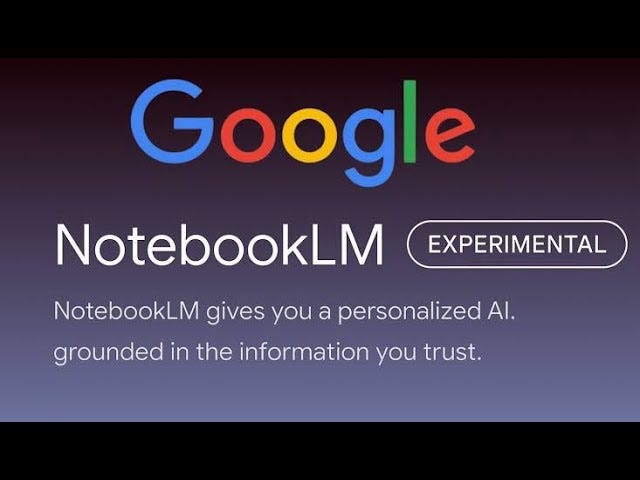AI Weekly Roundup: Voice Assistants, Open Source Models, and Tech Giants' Latest Moves
From Voice Assistants to AI-Designed Chips: A Week of Breakthroughs, Challenges, and Industry Shifts
The AI landscape continues to evolve at a breakneck pace, with major players like OpenAI, Meta, Google, and others making significant announcements and releasing new capabilities. This week saw advancements in voice assistants, open source models, AR/VR technology, and more. Let's dive into the biggest stories and what they mean for the future of AI.
OpenAI's Advanced Voice Assistant Rolls Out Widely
One of the week's major developments was OpenAI finally rolling out their advanced voice mode to ChatGPT Plus and Teams subscribers. This highly anticipated feature allows users to have voice conversations with ChatGPT, bringing AI assistants one step closer to science fiction depictions of AI companions.
The rollout wasn't without some hiccups - many users initially reported trouble accessing the feature on mobile devices. However, a simple workaround emerged: deleting and reinstalling the ChatGPT app seemed to resolve access issues for most people.
Early experiments with the voice assistant have yielded some interesting results. One user managed to get ChatGPT to perform a duet of "Eleanor Rigby" by The Beatles, showcasing the system's ability to understand musical concepts and even generate rudimentary singing.
There are some limitations to be aware of, however. OpenAI has implemented daily usage limits for the advanced voice feature. Plus and Teams users receive a notification when they have 15 minutes of usage remaining for the day. The exact daily limit isn't publicly specified and may be subject to change as OpenAI monitors usage patterns.
This move by OpenAI puts pressure on other AI companies to improve their own voice assistant offerings. It will be interesting to see how Google, Apple, and others respond in the coming months.
Changes Brewing at OpenAI
Beyond the voice assistant rollout, there are potentially major structural changes in the works at OpenAI. Reports suggest the company is looking to restructure its core business into a for-profit "benefit corporation" that would no longer be controlled by the current nonprofit board.
This restructuring appears aimed at making OpenAI more attractive to investors. The nonprofit would retain a minority stake, but the for-profit entity would have more flexibility in compensating employees and raising capital.
Notably, CEO Sam Altman is rumored to receive around a 7% stake in this new entity. With an estimated valuation of $150 billion, that would make Altman's share worth approximately $10.5 billion. While still unconfirmed, this move would align OpenAI's structure more closely with traditional tech companies and potentially accelerate its growth and development efforts.
In related news, several key OpenAI employees announced their departures this week:
- Mira Murati, Chief Technology Officer
- Bob McGrew, Chief Research Officer
- Barrett Zoph, Research VP
While the timing of these departures raised some eyebrows in the tech community, OpenAI maintains the decisions were made independently and amicably. The coordinated announcements may simply be to allow for a smoother transition to new leadership.
Sam Altman Shares His Vision for "The Intelligence Age"
Amidst the organizational changes, OpenAI CEO Sam Altman published a rare personal blog post titled "The Intelligence Age." In it, he outlines his vision for how AI will transform society in the coming decades.
Altman predicts that within a couple of decades, we'll have capabilities that would seem like magic to previous generations. He envisions personal AI teams of virtual experts that can help create almost anything we can imagine. This could revolutionize education, healthcare, software development, and countless other fields.
Perhaps most intriguingly, Altman states: "It is possible that we will have superintelligence in a few thousand days." This carefully worded statement suggests AGI (Artificial General Intelligence) could arrive sometime between 3 years and 2 decades from now, depending on how one interprets "a few thousand days."
Meta Connect 2023: AR, AI, and the Future of Social Technology
Meta (formerly Facebook) held its annual Connect conference this week, unveiling a slew of new products and AI-powered features. Here are some of the highlights:
1. Meta Quest 3 and Quest 3s: An updated version of Meta's popular VR headset, with the Quest 3s offering a more budget-friendly option starting at $299.
2. AI-powered features for Meta's apps: New AI capabilities are coming to Facebook Messenger, Instagram, WhatsApp, and other Meta platforms. These include multimodal understanding (processing text, images, and video), image editing via text prompts, and AI-powered translation and lip-syncing for video content.
3. Meta AI assistant with celebrity voices: Users will be able to chat with Meta's AI using the voices of celebrities like Snoop Dogg, Tom Brady, and Kendall Jenner.
4. Ray-Ban Meta smart glasses updates: New features include built-in AI assistance, live translation, and the ability to capture and recall memories.
5. Project Orion: Meta's ambitious augmented reality glasses project, which aims to deliver AR capabilities in a form factor closer to traditional eyewear.
6. Llama 3.2: An updated version of Meta's open-source large language model, now with multimodal capabilities.
These announcements showcase Meta's commitment to pushing the boundaries of AR, VR, and AI integration in social technologies. The company is clearly positioning itself to be a major player in the next era of computing and social interaction.
Google's AI Advancements: Gemini Updates and NotebookLM
Not to be outdone, Google also made several AI-related announcements this week:
1. Gemini model updates: Google has released updated versions of its Gemini AI models, with reduced pricing for the Gemini 1.5 Pro API and increased rate limits.
2. NotebookLM enhancements: Google's AI-powered note-taking and research tool received significant updates. Users can now add YouTube videos and audio files to their research folders, in addition to text documents. NotebookLM can then summarize this multimedia content, create study guides, generate timelines, and even produce AI-narrated podcast episodes based on the material.
These improvements to NotebookLM are particularly exciting for students, researchers, and anyone looking to more efficiently process and synthesize large amounts of information. The ability to quickly generate study materials and audio summaries from various sources could revolutionize how we approach learning and information retention.
James Cameron Joins Stability AI Board
In a surprising move, legendary filmmaker James Cameron has joined the board of Stability AI, the company behind popular image generation model Stable Diffusion. This partnership between one of Hollywood's most innovative directors and a leading AI company has raised eyebrows and sparked speculation about the future of AI in filmmaking.
Cameron, known for pushing the boundaries of visual effects in films like Avatar and Terminator 2, brings a wealth of experience in cutting-edge film technology. His involvement with Stability AI could lead to exciting new developments in AI-assisted filmmaking, potentially making advanced visual effects more accessible to smaller productions.
This move is particularly noteworthy given the ongoing tensions between Hollywood and the AI industry. Many in the entertainment world have expressed concerns about AI's potential to replace human creativity or infringe on intellectual property rights. Cameron's involvement with Stability AI may help bridge this divide and foster more collaborative approaches to AI in the creative industries.
Hollywood vs. AI: The Battle Over California's AI Legislation
Speaking of tensions between Hollywood and the tech industry, all eyes are on California Governor Gavin Newsom as he decides whether to sign or veto the controversial SB147 bill. This legislation would hold AI model makers responsible for "catastrophic harms" caused by their models, even if the company wasn't directly involved in the harmful use.
The bill has created a rift between California's two most powerful industries:
1. The tech industry, centered in Silicon Valley, strongly opposes SB147, arguing it could stifle innovation and unfairly penalize AI companies.
2. Hollywood, based in Los Angeles, supports the bill, seeing it as a necessary safeguard against potential misuse of AI technology.
Governor Newsom finds himself in a difficult position, needing to balance the concerns of two influential sectors. His decision could have far-reaching implications for the future of AI development and regulation in California and beyond.
Snapchat Partners with Google for AI Features
Snap Inc., the company behind Snapchat, has announced an expanded partnership with Google Cloud to power new AI experiences within the app. This collaboration will bring the multimodal capabilities of Google's Gemini AI to Snapchat's My AI chatbot, enabling it to understand and process various types of information including text, audio, images, and videos.
This partnership highlights the growing trend of consumer-facing apps integrating more advanced AI capabilities. By leveraging Google's technology, Snapchat aims to create more engaging and interactive experiences for its users, potentially setting new standards for social media AI integration.
Microsoft's New AI Safety Tool Tackles Hallucinations
Microsoft has unveiled a new AI safety tool that claims to significantly reduce or even eliminate AI hallucinations - instances where AI models generate false or unsupported information. The feature, called "grounding," gives AI systems the ability to automatically detect and rewrite incorrect content in their outputs.
This development addresses one of the major concerns surrounding large language models and could greatly increase the reliability of AI-generated content. The grounding feature is currently available in preview as part of the Azure AI Studio, Microsoft's cloud-based AI development platform.
AMD Enters the AI Model Race
Chip manufacturer AMD has released its first small language model, called RMC 135M. While details about the model's specific use cases are limited, its relatively small size suggests it may be designed for on-device inference, potentially in mobile phones or other edge computing scenarios.
This move signals AMD's intent to compete more directly with NVIDIA in the AI chip market, potentially leading to more diverse and cost-effective options for AI hardware in the future.
Cloudflare Introduces AI Audit Tool
Web infrastructure company Cloudflare is rolling out a new AI audit tool to help content creators block AI bots from scraping their websites. This tool addresses growing concerns among writers, artists, and other content creators about large tech companies using their work without permission to train AI models.
By giving website owners more control over how their content is accessed and used, Cloudflare's tool could play a significant role in the ongoing debates surrounding AI training data and intellectual property rights.
Duolingo Launches AI-Powered Language Learning Features
Popular language learning app Duolingo is introducing two new AI-powered features to enhance the learning experience:
1. AI-powered adventure game: This feature creates an immersive, game-like environment where users can practice their language skills by interacting with AI characters in various scenarios.
2. Video call feature: Learners can now have video conversations with an AI tutor, simulating real-world language practice in a safe, judgment-free environment.
These innovations showcase how AI can be leveraged to create more engaging and effective educational experiences, potentially revolutionizing how we approach language learning and other educational pursuits.
FTC Cracks Down on Deceptive AI Claims
The U.S. Federal Trade Commission (FTC) has announced a crackdown on companies making deceptive claims about their AI capabilities. The agency is targeting firms that exaggerate the abilities of their AI products or make false promises about AI-powered money-making schemes.
This move by the FTC signals increased regulatory scrutiny of AI marketing claims and could lead to more honest and transparent communication about AI capabilities in the marketplace.
Google DeepMind's AlphaChip: AI Designing Better AI Chips
Google DeepMind has unveiled AlphaChip, an AI system designed to improve computer chip design for AI applications. This creates a fascinating feedback loop: AI is being used to create better chips, which in turn can be used to train more advanced AI models.
The potential of this approach is enormous, potentially leading to exponential improvements in AI hardware efficiency and performance. As these specialized AI chips become more powerful and cost-effective, we may see acceleration in the development of more advanced AI systems across various domains.
Conclusion: The AI Revolution Continues to Accelerate
This week's developments underscore the rapid pace of innovation in the AI field. From voice assistants and multimodal models to AR glasses and AI-designed computer chips, we're seeing advancements across a wide spectrum of technologies.
As AI capabilities grow, so too do the ethical, legal, and societal questions surrounding their development and use. The tensions between tech companies, creative industries, and regulators highlight the need for thoughtful discourse and collaboration as we navigate this new technological frontier.
One thing is clear: AI is no longer a technology of the future - it's very much a part of our present, and its influence is only going to grow. Staying informed about these developments is crucial for anyone looking to understand and participate in shaping the future of technology and society.







